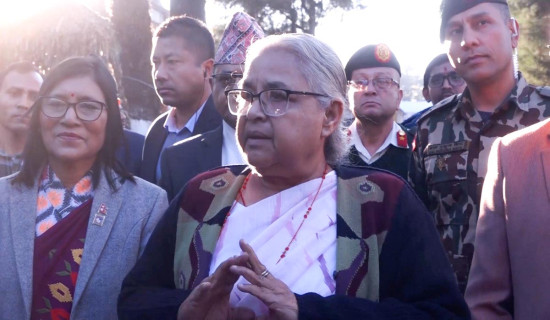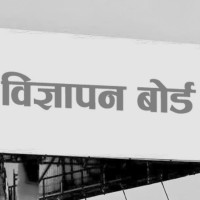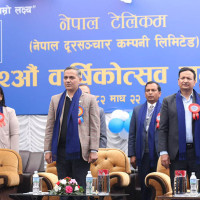- Thursday, 5 February 2026
Finland Leads In Inclusive Voting
With the arrival of spring after a prolonged and dark winter, Finland held its municipal elections. Although the election day was officially set for April 13, advance voting began as early as April 2. In these elections, foreign residents had the opportunity to vote and even run for municipal office. According to official statistics, there are approximately 260,000 foreign voters, including around 5,000 Nepali nationals.
While Nepal excludes around five million Nepalis living abroad from their constitutional rights to vote, Finland stands out as one of the few countries that extend voting rights to non-citizens. These rights are granted based on duration of residence. Nordic and European Union citizens qualify to vote if they are 18 years old and have lived officially in Finland for at least 51 days. For citizens outside of Europe, the residency requirements are two years. All the eligible voters are personally notified about their rights through letters from the Population Services Agency. These letters provide information about election dates, polling locations, early voting venues, and their operation hours, including date and time. This provides voters flexibility to choose a time and venue that suits them best to cast their votes.
A leader of the Nepali community living in the city of Turku, Ajay Joshi, works as a lecturer at the Turku University of Applied Sciences. He participated in the municipal elections as a voter. “I used the voting compass to seek the candidate that closely aligns with my views. This right comes with the responsibility to participate. I hope all immigrants use this right,” he shared his experience.
For people with busy schedules and less networking, Finland has developed a ‘voting compass’. Voters can register for it online and ask questions and express opinions. The machine directs the prospective voters to the nearest candidate that represents their values. Many voters in Finland use this machine to make informed decisions. In the 2023 parliamentary elections, 57 per cent of the voters used Election Compass before deciding whom to vote.
For Joshi, this election provided a sense of belonging. “I feel I also matter for Finland. My voice was heard,” he said. “I live here; I would not expect the rights to vote in Nepal’s local elections, but it is unfortunate that people like us who love Nepal inside out are excluded from the processes of parliamentary elections. Giving us the rights to vote in parliamentary elections would genuinely support the strengthening of Nepali democratic processes.”
Millions of Nepalis, as many as the current Finnish population, live away from home. They contribute significantly to Nepal’s economy. While foreigners in Finland enjoy municipal voting rights just as Finns do, Nepali citizens living abroad—whether in Europe, the United States, Australia, the Middle East, or even in India—are left without any voice for political participation. According to Nepal Rastra Bank’s annual data for 2022/23, the remittance inflow stood at $9.33 billion. It plays a crucial role in Nepal’s economy, contributing to 25-30 per cent of the country’s GDP. Those contributions have added to Nepal’s overall development.
Visiting researcher from the University of Eastern Finland, Dr Ghanshyam Biswokarma, arrived in Finland in 2006 with his family, but he has not given up Nepali citizenship. “Finnish municipal elections policy is very flexible; we also plan to vote. I take this right to vote as an opportunity to influence decisions that affect us all.”
Reflecting upon the Nepali policy, Bishwokarma says he cannot vote in Nepal even if he is around. “People who have left the country are excluded from the voters’ list. Whereas a foreigner can not only vote but run for the office in Finland, Nepal’s policy creates huge disparity. This should be addressed. I feel those who live abroad should be as much a part of the country when it comes to exercising their constitutional rights. How can we say that we are practising democracy in Nepal by depriving them of their constitutional rights?” he asked, adding Nepal should recognise voting rights for all its citizens without further delay.
Nepal cannot be compared to Finland logistically. Nepal has its own challenges to accommodate millions of its citizens living abroad into the electoral processes, but Nepal can obviously learn from Finland. As Nepal is the utmost priority partner of Finland’s international development cooperation, perhaps Finland can support logistics development and solutions to ensure the voting rights of Nepalis living abroad. After all, Finland is known for supporting democracy in areas where democracy is fragile. And enabling the voting rights of 5 million informed people will certainly strengthen the essence of democracy and democratic institutions and promote good governance in Nepal.
Manoj Bhusal, a resident of Helsinki who is completing a doctoral thesis at Helsinki University, said that the right to vote is not just an emotional matter, but it is contributing to the feeling of detachment between Nepalis and Nepalis living abroad. “While the adopted home provides us with the rights to vote, our motherland denies us our rights. A nation should work hard to ensure participation, a sense of belonging and ownership for its people. This is something we should work on in Nepal and learn from a country like Finland.”
Bhusal said while it is frustrating to be disallowed from having an opinion in the ballot in Nepal, they were involved in making decisions via vote here. “For people like us, Finland gives a sense of trust and motivation to be interested in local politics of the host country.” According to Bhusal, Finland sets a unique precedent which is very inclusive.
In future, hopefully, Nepal initiates proper arrangements to grant voting rights to Nepalis living abroad. There are several examples of how countries have adopted easy methods to provide voting rights for their citizens living abroad. Some have arranged mail voting; some have consulate voting, and others have also started online voting as well. It is just a matter of acknowledging its citizens and hearing their voice, no matter where they live. Nepal just needs political will and proper arrangements not to leave any Nepalis unheard.
(A journalist in Nepal in the early 2000s, Dhakal was an SDP candidate in the Finnish municipal elections in 2021 and was elected for the process of the Järvenpää city council.)
















